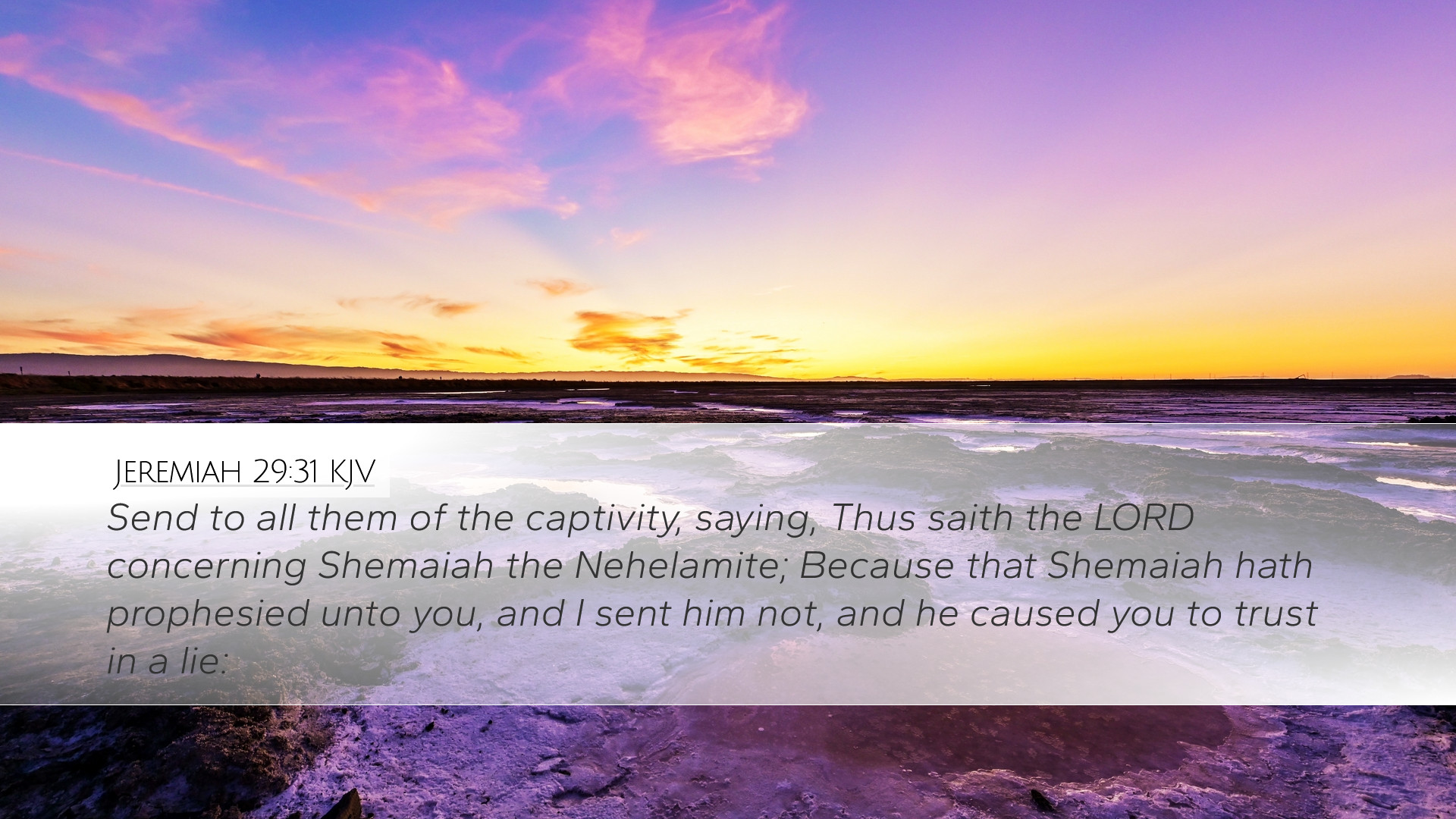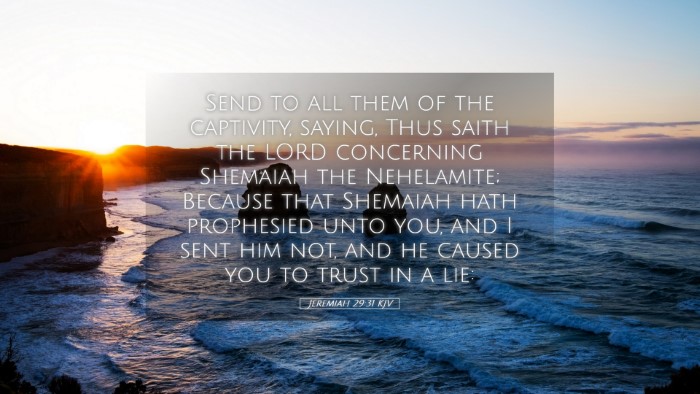Commentary on Jeremiah 29:31
Verse: "Send unto all them of the captivity, saying, Thus saith the Lord concerning Shemaiah the Nehelamite; Because that Shemaiah hath prophesied unto you, and I sent him not, and he caused you to trust in a lie." (Jeremiah 29:31, KJV)
Introduction
This verse encapsulates a pivotal message from God to His people during the Babylonian exile. It highlights the dangers of false prophecy and the importance of discerning true messages from the Lord amid a challenging period of captivity. Notably, the figure of Shemaiah serves as a cautionary example of misleading messages that can lead believers astray.
Contextual Background
The Book of Jeremiah is set against the backdrop of Judah's calamity—its fall to Babylon and the subsequent exile of its people. Jeremiah, often referred to as the 'weeping prophet,' delivered God's messages to a rebellious nation. His prophecies include both warnings of impending judgment and promises of restoration. Jeremiah 29 specifically addresses the exiles in Babylon, illustrating the need for them to adapt to their situation while maintaining hope in God's ultimate deliverance.
The Role of Shemaiah
The mention of Shemaiah, a Nehelamite, underscores the existence of false prophets who claim to speak for God (Jeremiah 29:31). Matthew Henry emphasizes that Shemaiah presented a prophetic word that was not divinely inspired, thereby leading the people into deception.
Albert Barnes notes the significance of God's direct action against Shemaiah's claims, framing the prophet's opposition as a critical aspect of divine truth. This serves as a reminder to the exiles, and ultimately to all believers, of the veracity of God’s word against human fabrication.
The Dangers of False Prophecy
In this passage, we see the grave ramifications of believing in a false prophecy. Adam Clarke elaborates on how these deceptive teachings jeopardized the faith of the people and their understanding of God’s true purpose for their exile.
- Misplaced Trust: Shemaiah's prophecies instigated a false sense of security among the captives, leading them to trust in a lie rather than God's redemptive plan.
- Dissonance with God’s Message: True prophets like Jeremiah spoke of the need for repentance and endurance, while false prophets offered empty hope without the requisite faithfulness to God.
Divine Authority and False Prophets
This scripture confirms God’s authority to reject false claims made in His name. Matthew Henry asserts that the Lord's command to send a message regarding Shemaiah's falsehood emphasizes the seriousness of speaking on behalf of God without divine mandate.
When God categorically states, "I sent him not," it denounces the legitimacy of the false prophet's message, illustrating the principle that true prophecy aligns with God's will and outcomes. Albert Barnes affirms that God takes vigilant notice of those who corrupt His word, calling them out for accountability.
The Role of Believers
For contemporary believers, this verse serves as an exhortation to the discerning nature of faith. Adam Clarke encourages believers to test the spirits and messages they encounter, recognizing that not everyone who speaks in God's name does so with divinely granted authority.
- Discernment: Believers should cultivate discernment and seek confirmation of messages through prayer and Scripture.
- Faithfulness: It’s vital for congregations and individuals to remain faithful to God's truth, especially in challenging times.
Conclusion
Jeremiah 29:31 remains a powerful reminder of the necessity of vigilance in faith. The Lord’s declaration regarding Shemaiah reinforces the theme of divine truth over human deception. As believers, recognizing the foundational truths of Scripture and adhering to the genuine calls of God empowers us to navigate today's complexities with discernment. Ensuring that our faith rests upon the true, unaltered word of God protects us from the snares of falsehood.


